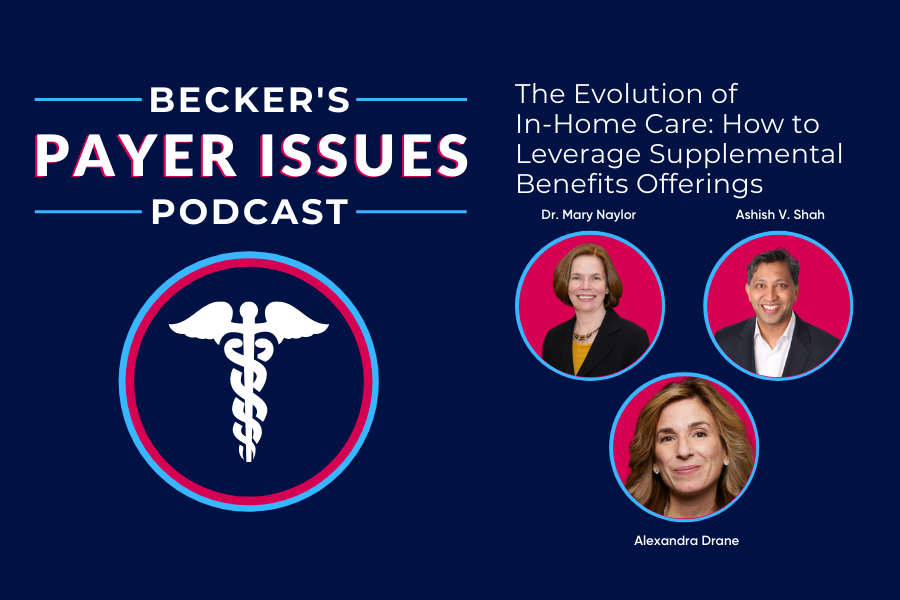
As care continues to move into the home, traditional Medicare-approved services like skilled nursing and home health care are no longer enough. New Supplemental Benefits offerings, including meal delivery, transportation, in-home care, and pest control, are just a few of the non-medical services required to support people as they receive care at home.
“We Need to Do Something Different”
“We have a shrinking caregiver workforce and we have rising healthcare costs. We need to do something different,” said Mary Naylor, director of the NewCourtland Center for Transitions and Health at the University of Pennsylvania School of Nursing. “Aging in place and care at home have been identified as key solutions to address inequities in health outcomes and to care for our rapidly growing population of aging and chronically ill adults.”
We have a shrinking caregiver workforce and we have rising healthcare costs. We need to do something different.
Naylor joins Dina CEO Ashish V. Shah and Archangels CEO Alexandra Drane on the Becker’s Payer Issues podcast: “The Evolution of In-Home Care: How to Leverage Supplemental Benefits Offerings.”
Tune in to hear about the growth in Medicare Advantage, what MA plans can do now to support people as they receive care at home, and how that differs from fee-for-service, with Supplemental Benefits as the perfect example.
Supporting People in Their Homes
The panel also reviews how health plans can remain competitive by:
- Designing and coordinating Supplemental Benefits as a mechanism for attracting and retaining members
- Driving innovation and addressing social determinants of health
- Leveraging local partners to act as a data collection source and activate whole member care
Listen to the Becker’s Payer Issues podcast: “The Evolution of In-Home Care: How to Leverage Supplemental Benefits Offerings.”
Want more news about building care-at-home models and staying connected to the home? Sign up for our newsletter for regular industry and company updates.




